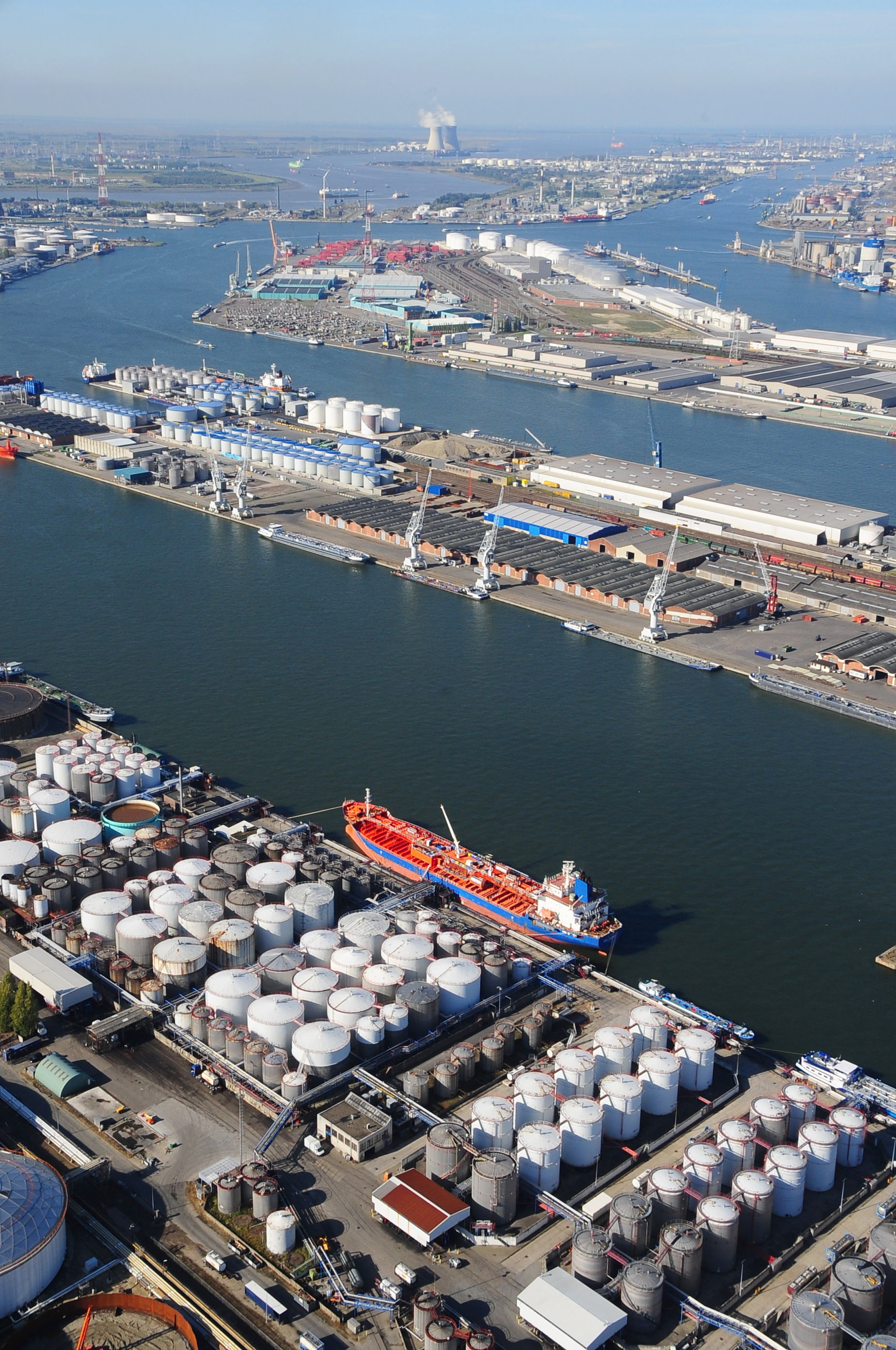Port of Antwerp aims to further reduce CO2 emissions
Eight players in chemical & energy sectors investigate feasibility of CO2 infrastructure
Port of Antwerp is taking yet another important step in the transition to a sustainable, lower emissions port. Eight leading players in the port area – Air Liquide, BASF, Borealis, INEOS, ExxonMobil, Fluxys, Port of Antwerp and Total – have signed a collaboration agreement as a first move towards the possible development of Carbon Capture, Utilisation & Storage (CCUS) infrastructure. The consortium will carry out a joint study into the economic and technical feasibility of such facilities. CCUS applications can make an important contribution towards achieving climate goals.
More impact through collaboration
Facing up to climate change and the role played by CO emissions demands more innovative solutions. As the location of the largest energy & chemicals cluster in Europe, Port of Antwerp is the ideal location to foster collaboration between companies and take innovative steps towards CO₂ reduction. To put this into practice eight leading players in the port area have joined forces. Air Liquide, BASF, Borealis, INEOS, ExxonMobil, Fluxys, Port of Antwerp and Total have signed a collaboration agreement to investigate the feasibility of facilities for Carbon Capture, Utilisation & Storage (CCUS) in the port. These facilities would be of the "open access" type, available to the entire industrial community in the port.
Carbon Capture & Storage (CCS) and the use of CO₂ as a raw material for various industrial applications (Carbon Capture & Utilisation, or CCU) are seen as important avenues in the transition to a lower emissions port. The partners in the project believe that both applications can have a significant impact in the longer term and can make a useful contribution to achieving the energy and climate objectives at Flemish, Belgian and European level. If the proposals turn out to be technically and economically feasible, then development of such facilities can lead to reductions in CO₂2 emissions in the run-up to 2030.
Feasibility study and finance
In the first phase the partners will carry out detailed studies of the technical and economic feasibility of CO₂ facilities to support CCUS. This analysis is expected to take around one year to complete. Financial support from Flanders, the Belgian federal government and the EU is essential for further successful implementation of the project. One important part of this is preparation of subsidy applications.
International collaboration
The feasibility study will also investigate the possibilities for CO₂ storage. Belgium does not have suitable geological formations for storing CO₂ underground, and so international collaboration will be necessary. To support this international collaboration, Port of Antwerp and a number of other partners submitted two applications to the European Commission earlier this year for recognition as ‘Projects of Common Interest’. Both projects offer possibilities for investigating the development of cross-border CO₂ transport infrastructure, linking up respectively with Rotterdam (CO₂2TransPorts project) and Norway (Northern Lights project). A decision on these applications is expected by the end of this year. In the context of the feasibility study the results of these applications will be taken into account and contacts with other CO₂ storage initiatives will be sought so that robust concepts can be developed for the CO₂-intensive companies in the region.
Port of Antwerp CEO Jacques Vandermeiren declared: "In addition to making use of sustainable energy sources and raising the energy efficiency of production companies, CCUS can make an important contribution in the transition to a sustainable, lower emissions, circular economy in the port. In our role as community builder we aim to make a practical contribution towards this. If such joint infrastructure can be realised then it will benefit the entire industrial community in the port."
